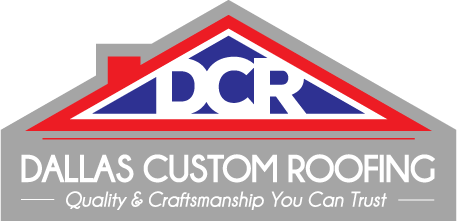In the United States alone, hail accounts for at least one billion in crop and property damage each year. Among those statistics residential roofs make up a large portion of that damage. According to the Houston Chronicle, Texas has more hail and wind damage than any other state and it is estimated more than 40% of all homeowners insurance claims are hail related. Throughout Dallas, TX hail damage is one of the leading causes for insurance claims for residential roofs.
“Texas has more hail and wind damage than any other state”
There are two main ways large hail can cause damage to an asphalt shingle roof. First, is actual physical damage caused by the traumatic impact of hail onto the surface of the asphalt shingle. This causes cracks, holes, and breaks in the shingle material and can often lead to leaks. This is called "bruising" when the asphaltic mat is shown.
Second, in many cases, the asphalt shingles can appear "peppered" or marred with hail where parts of the surface granules have been lost. When the granules are no longer protecting the shingle, this over time, can cause early deterioration in the shingle and weaken it's protective capabilities to the decking from sun and rain.
A square test is a common test conducted by roofing professionals and insurance adjusters for assessing hail damage. A 10' x 10' square is marked on the shingle portion of the roof and is examined for signs of hail inside that marked square. Each insurance company has differing criteria for what it deems sufficient to warrant a full replacement. Talk to your roofing professional to find out if you have hail damage to your roof by asking for a square test.
There have recently been many advancements in shingle technology that have led to many shingle products that are now resistant to hail damage. Many products are developed by manufacturing a architectural shingle, which contains several layers which makes the shingle more resistant. Talk to your roofing contractor to find out which type of shingle product is right for you. If you are in Texas, it might be a good time to get an inspection done sooner rather than later.




